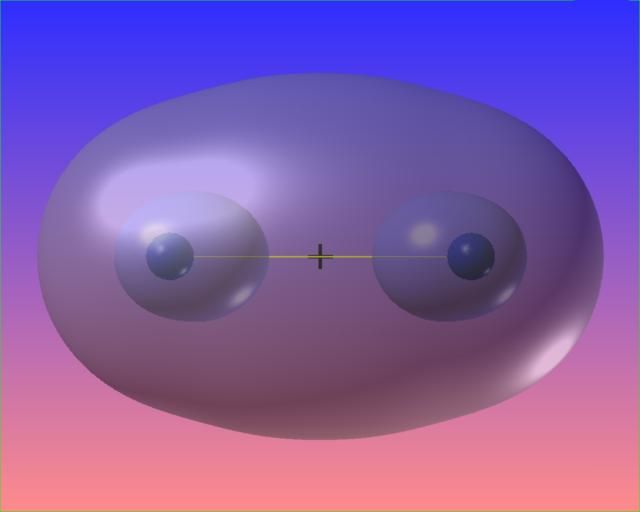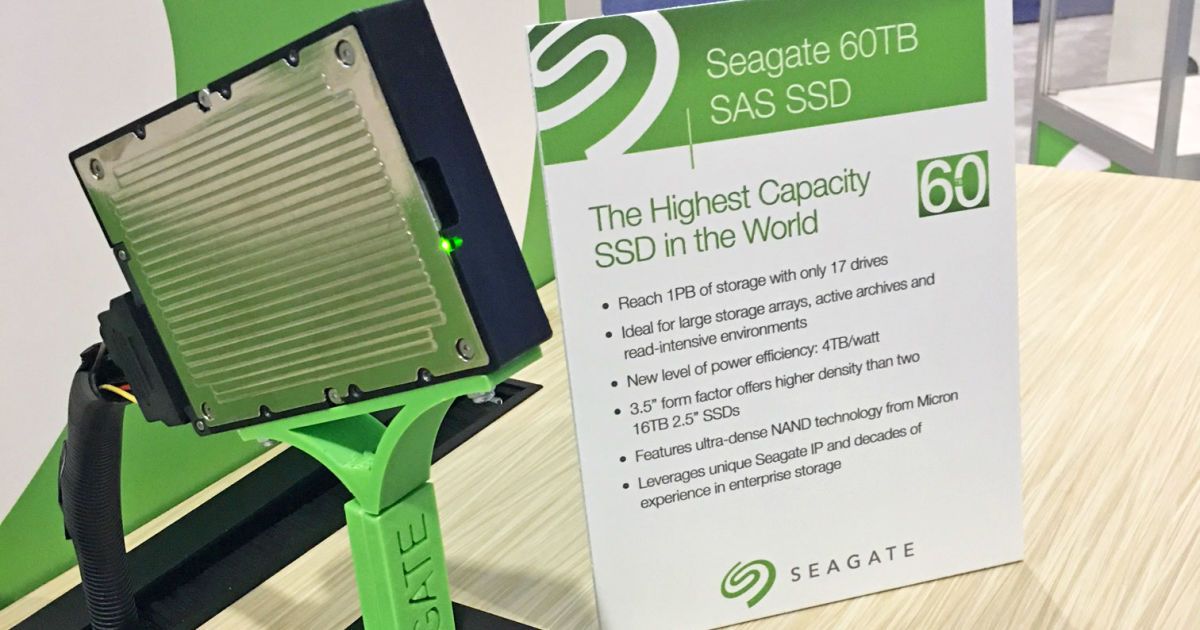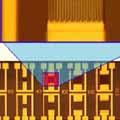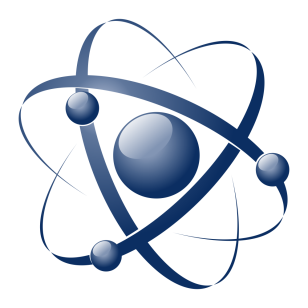Extra bits —
Hydrogen molecule falls to quantum computer.
Quantum computer calculates ground state of hydrogen with just two qubits.


Seagate has just announced a whopping 60 TB solid-state-drive, the largest SSD yet with that sort of capacity. Unfortunately, the SSD is only meant for businesses, released as an addition to Seagate’s data center portfolio. With four times the capacity of the next leading SSD, this massive hard drive could hold up to 12,000 DVD movies or even a whopping 400 million photos. Just sit back and think about how ridiculous an amount of data that really is.
The drive was created with quick accessibility in mind, and its flexibile artchitecture means it’ll be simple for data centers to grow from 60TB to accommodate 100TB or more of data in the future, all using the same form factor.
The 60TB SAS SSD is only available right now for demonstration, though it will officially make its debut some time in 2017. Unfortunately, we don’t yet know exactly what the drive itself will look like, though given the fact that it’s just a SSD, I can’t imagine it’ll look especially wild.

Gone are the days for US Tech on quick and easy money — China is making the US Tech face the realities of being relevant or being replaced. My suggestion for folks like Apple, Microsoft, FB take a chapter from Alphabet’s playbook and focus on those technologies that truly revolutionize the technology landscape, multiple industries, etc. Stop throwing money at gadgets and easy replicated apps and services. Let China own it because eventually they will. Focus on things like biocomputing, QC, space, etc. Because anything copied multiple times and quickly means it is easily replaced by the next cheaper and better gadget.
The recent Uber acquisition drama in China has given a new twist to the country’s technology sector.
Domestic tech companies are straining at the leash to go global while also defending their home markets from foreign competitors.
Even before the Didi/Uber battle unfolded, China’s tech firms were making waves. The global industry has been anxiously watching to see if the Chinese behemoths play a big part in the mergers and acquisitions game as they look to gulp down foreign companies. Home-grown giants such as Alibaba, and Tencent with its WeChat platform, have expanded across several countries although they still have a long road to travel before making worldwide impact.

Although I shared this news yesterday, this article provide some added details.
Efforts towards realising a practical quantum computer have been given a huge boost after a team of researchers made successful advances in qubit miniaturisation.
Qubits or quantum bits are the basic building blocks behind quantum computing and hold the capacity to process enormous computational tasks in real-time. However, working out how to miniaturise the technology remains a huge obstacle to quantum computer development.
One approach to the challenge involves trapped ions, but this requires large and complicated hardware components. Now, researchers at MIT are developing a prototype chip which is able to trap ions in an electric field and control them using targeted laser technology.

LAS VEGAS, Nev. — Mayhem ruled the day when seven AIs clashed here last week — a bot named Mayhem that, along with its competitors, proved that machines can now quickly find many types of security vulnerabilities hiding in vast amounts of code.
Sponsored by the Defense Advanced Research Projects Agency, or DARPA, the first-of-its-kind contest sought to explore how artificial intelligence and automation might help find security and design flaws that bad actors use to penetrate computer networks and steal data.
Mayhem, built by the For All Secure team out of Carnegie Mellon University, so outclassed its competition that it won even though it was inoperable for about half of the contest’s 96 270-second rounds. Mayhem pivoted between two autonomous methods of finding bugs and developing ways to exploit them.

New way for IoT and data centers in general to improve energy use, costs, etc.
Arrays based on vertical-cavity surface-emitting lasers offer a high-bandwidth, low-power, and low-cost solution for intra-data centers.

With the emergence of high-performance digital systems and the rapid growth of Internet traffic in the 1990s, the US Air Force Research Laboratory (AFRL) Micro Electronics Technology Directorate correctly predicted the growing need for optical interconnects and thus initiated several efforts to develop such technologies for the next generation of high-performance digital systems. This work was also prompted by significant advances in optical materials (i.e., III-V materials and polymers), devices (vertical-cavity surface-emitting lasers, VCSELs), and packaging technologies that were also made during this period.1 In collaboration with the Defense Advanced Research Projects Agency (DARPA) Electronic Technology Office, the AFRL thus initiated several major programs in this area.

I will like to see how this stacks against China’s Quantum net, QC platform, AI, and hackers in the future. Not sold at this point until we truly have a QC infrastructure in place.
At DARPA’s Cyber Grand Challenge, bots showed off their ability to help a world wallowing in vulnerable code.
LAS VEGAS, Nev. — Mayhem ruled the day when seven AIs clashed here last week — a bot named Mayhem that, along with its competitors, proved that machines can now quickly find many types of security vulnerabilities hiding in vast amounts of code.
Sponsored by the Defense Advanced Research Projects Agency, or DARPA, the first-of-its-kind contest sought to explore how artificial intelligence and automation might help find security and design flaws that bad actors use to penetrate computer networks and steal data.

Dmitry Fedyanin from the Moscow Institute of Physics and Technology and Mario Agio from the University of Siegen and LENS have predicted that artificial defects in the crystal lattice of diamond can be turned into ultrabright and extremely efficient electrically driven quantum emitters. Their work, published in New Journal of Physics, demonstrates the potential for a number of technological breakthroughs, including the development of quantum computers and secure communication lines that operate at room temperature.
The research conducted by Dmitry Fedyanin and Mario Agio is focused on the development of electrically driven single-photon sources—devices that emit single photons when an electrical current is applied. In other words, using such devices, one can generate a photon “on demand” by simply applying a small voltage across the devices. The probability of an output of zero photons is vanishingly low and generation of two or more photons simultaneously is fundamentally impossible.
Until recently, it was thought that quantum dots (nanoscale semiconductor particles) are the most promising candidates for true single-photon sources. However, they operate only at very low temperatures, which is their main drawback – mass application would not be possible if a device has to be cooled with liquid nitrogen or even colder liquid helium, or using refrigeration units, which are even more expensive and power-hungry. At the same time, certain point defects in the crystal lattice of diamond, which occur when foreign atoms (such as silicon or nitrogen) enter the diamond accidentally or through targeted implantation, can efficiently emit single photons at room temperature. However, this has only been achieved by optical excitation of these defects using external high-power lasers. This method is ideal for research in scientific laboratories, but it is very inefficient in practical devices.

Quantum computers are largely hypothetical devices that could perform some calculations much more rapidly than conventional computers can. Instead of the bits of classical computation, which can represent 0 or 1, quantum computers consist of quantum bits, or qubits, which can, in some sense, represent 0 and 1 simultaneously.
Although quantum systems with as many as 12 qubits have been demonstrated in the lab, building quantum computers complex enough to perform useful computations will require miniaturizing qubit technology, much the way the miniaturization of transistors enabled modern computers.
Trapped ions are probably the most widely studied qubit technology, but they’ve historically required a large and complex hardware apparatus. In today’s Nature Nanotechnology, researchers from MIT and MIT Lincoln Laboratory report an important step toward practical quantum computers, with a paper describing a prototype chip that can trap ions in an electric field and, with built-in optics, direct laser light toward each of them.
Nice — another step forward for all things connected.
Scientists can now talk to and even command living cells–to a limited degree at the moment, but with massive implications for the future. MIT biological engineers have created a computer code that allows them to basically hijack living cells and control them. It works similarly to a translation service, using a programming language to create a function for a cell in the form of a DNA sequence. Once it’s scalable, the invention has major ramifications. Future applications could include designing cells that produce a cancer drug when a tumor is detected or creating yeast cells that halt their own fermentation if too many toxic byproducts build up.
That’s not to imply it isn’t a big deal already. The code allows anyone, even someone without a biology background, to modify a pre-existing cell. All that’s required is knowledge of the programming language, which is based on one commonly used for computer chips called Verilog. “You could be completely naive as to how any of it works,” MIT biological engineering professor Christopher Voigt said in a press release. “That’s what’s really different about this. You could be a student in high school and go onto the Web-based server and type out the program you want, and it spits back the DNA sequence.” To learn more, read the full story here. For more on the confluence of biology and technology, watch this TED Talk below.